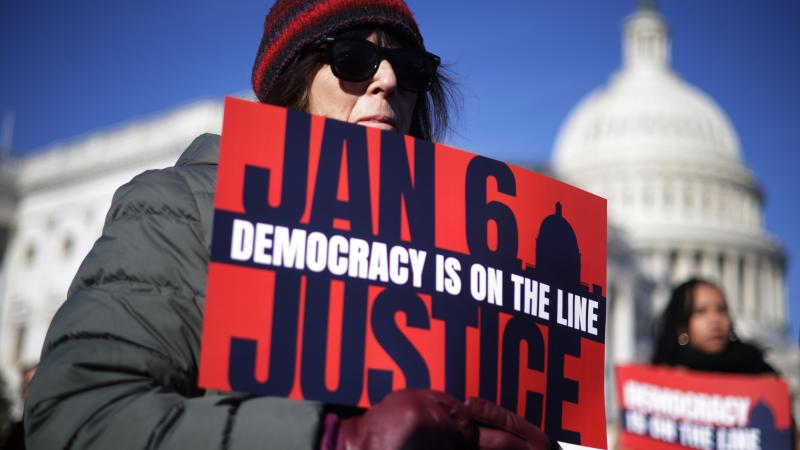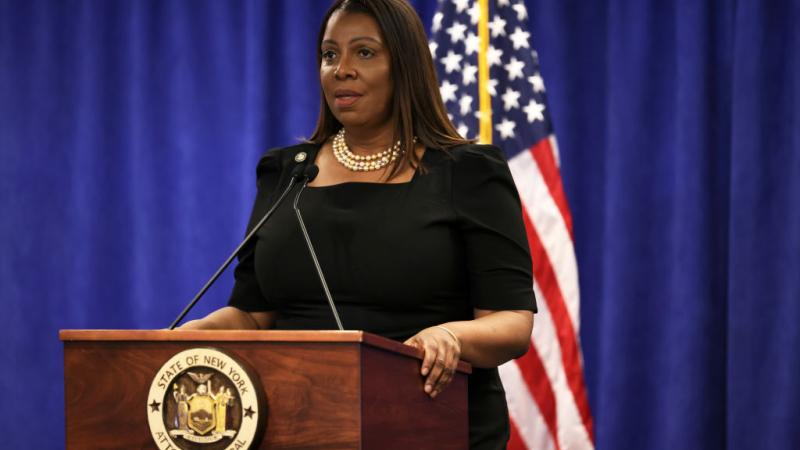Judge tosses lawsuit by female student athletes to block transgender athletics policy
"Girls and women deserve opportunities that are truly equal," not facing off against runners with inherent physiological advantages, plaintiffs' lawyer says.
A Connecticut policy that allows students to compete in high school sports according to their gender identity is safe — at least until another transgender girl competes in girls' sports.
U.S. District Judge Robert Chatigny ruled Sunday that a sex discrimination lawsuit by track athletes Selina Soule, Chelsea Mitchell, Alanna Smith and Ashley Nicoletti was not "justiciable at this time."
That's because the COVID-19 pandemic preempted their athletics season last year, and the two plaintiffs who have not graduated do not face prospective competition from transgender girls, Chatigny said.
The judge also said school districts were following Obama administration guidance on gender identity, which the Trump administration did not explicitly change until last summer, months after the lawsuit was filed.
The Connecticut Interscholastic Athletic Conference (CIAC) policy differs from longstanding NCAA policy, reaffirmed this month, by not requiring biologically male students to take testosterone-suppressing hormones for a year before competing in girls' sports.
Even if transgender girls took these hormones, the plaintiffs argued, they still retained physiological advantages over students born female, from "bone size and hip configuration" to "muscle mass and strength, bone mineral density, lung size" and heart size. The CIAC policy thus institutionalizes unequal treatment of females in violation of Title IX.
Transgender athletes Andraya Yearwood and Terry Miller started dominating Connecticut girls' track in 2017.
They won 15 state championships between them and took "more than 85 opportunities" for competitive advancement from biologically female athletes, potentially costing the plaintiffs college scholarships, according to the lawsuit. Like Soule and Mitchell, Yearwood and Miller have since graduated.
The Alliance Defending Freedom, which is representing the plaintiffs, said it would appeal the ruling. "Unfortunately, this court has chosen to ignore our clients' demoralizing experiences of losing to male runners," alliance attorney Christiana Holcomb said. "Girls and women deserve opportunities that are truly equal — without being sidelined or dominated by males choosing to join their sport."
A spokesperson for the law firm told Just the News that Judge Chatigny was wrong that "no real dispute remains." Its clients who have graduated are "legally entitled" to state athletic records that reflect "the places, medals, and championships that they actually earned," while the current students deserve legal protection "against unfair competition from biological males in upcoming seasons."
Asked if CIAC might revisit the particulars of the policy, such as its silence on hormone suppression, a spokesperson told Just the News it had no plans to do so "at this time."
In a subsequent statement, CIAC said it was "prepared to defend this lawsuit on the merits had there been any basis for it to continue," but the court correctly determined that its "inclusive participation policy" followed federal guidance "at the time it was adopted."
Letting transgender students participate on teams that align with their gender identity is "in accordance with its mission to promote meaningful participation in high school sports activities for all student-athletes, CIAC said.
Opponents of biological male participation in female sports have since taken to state legislatures, but they have faced hurdles even in red states.
South Dakota lawmakers rejected "style and form" veto changes made by Republican Gov. Kristi Noem on a bill that would have limited K-12 and college women's sports to "participants who are female, based on their biological sex." Kansas Gov. Laura Kelly, a Democrat, vetoed a similar bill last week.
Trump administration waited too long to officially change policy
The four Connecticut cisgender track athletes got a boost in summer 2019 when the Department of Education's Office for Civil Rights agreed to open an investigation of the CIAC policy for potential violation of Title IX.
The Trump administration, however, did not stop transgender girls from competing in the spring 2020 track season, prompting the four girls to sue in February 2020. Their lawsuit soon faced setbacks, and not just the potential for the pandemic to drag out if not moot their case.
The Alliance Defending Freedom unsuccessfully sought Chatigny's recusal based on the judge's demand that the law firm stop referring to Yearwood and Miller as "males" — terminology he characterized as "bullying."
While the Justice Department sided with the cisgender athletes against CIAC, the Department of Education waited until May to threaten to yank federal funding from Connecticut school districts who are CIAC members.
Chatigny noted that the Trump administration did not explicitly tell the defendants until August that Title IX regulations "require that sex-specific sports teams be separated based on biological sex."
Though it rescinded its predecessor's 2016 guidance on transgender sports participation the following year, the Trump administration "did not provide clear notice" that letting biological males compete in girls' sports violated Title IX, the judge said.
Courts have also "consistently" told school districts that Title IX requires them to treat transgender students according to their gender identity. Thus, the plaintiffs can't obtain monetary damages against the school districts, the judge said.
Too speculative that they'll face another transgender competitor
The graduation of Yearwood and Miller pulled the legal rug out from under Smith and Nicoletti, who still have a year of athletic eligibility.
While it's "theoretically possible" they will face transgender competition as seniors, they would still not suffer a "legally cognizable injury" unless a biologically male student ran in the same events and achieved "substantially similar times," Judge Chatigny said.
The remaining students can file a new lawsuit and seek a preliminary injunction against the CIAC policy — with an expedited hearing likely to be granted — if they do face "male-bodied" athletes again.
The judge also refused to change the race records to eliminate Yearwood and Miller and move "everyone else up one position." The plaintiffs claimed their ability to get jobs was harmed by placing behind runners who were allegedly ineligible to compete in girls' sports.
The only student whose case for "redressability has some cogency" is Mitchell, who would have four additional wins on her resume if the transgender athletes' placements were removed, Chatigny said. But even then, "it seems inevitable" that a prospective employer would learn she didn't actually place first in these races.













